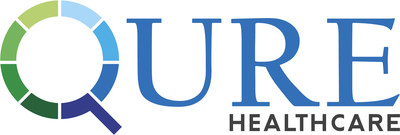Using QURE’s proprietary CPV tool, results demonstrate significant improvement in evidence-based opioid management clinical decisions among practicing physicians
Using QURE's proprietary CPV tool, results demonstrate significant improvement in evidence-based opioid management clinical decisions among practicing physicians
LEAWOOD, Kan., Dec. 19, 2019 /PRNewswire/ -- Ascend Learning Clinical Healthcare and QURE Healthcare have formed a partnership to reduce unneeded clinical variation and help practicing physicians make more evidence-based clinical decisions for their patients.

The first offering in this partnership, focused on primary care physicians, addresses the gap between Centers for Disease Control (CDC) Guidelines for Prescribing Opioids for Chronic Pain and actual practice among busy clinicians – an area of immense need across the country. In the recently completed QURE and Ascend nation-wide validation study, practicing primary care physicians demonstrated strong improvement across several key clinical decision-making areas, including overall evidence-based care decisions and diagnoses.
The six-week training program incorporated Ascend's Insight to Action™ modules and leveraged QURE's validated patient simulation-based training and feedback tool, known as Clinical Performance and Value (CPV) vignettes. The impact of the CPV intervention was determined using a psychometrically constructed pre-and post-assessment survey. The validation study initially assessed primary care provider knowledge of the evidence-based criteria in the CDC's opioid guidelines. The physicians then went through a series of short, interactive, practice-focused clinical vignettes, wherein they are given real-time performance feedback on their care decisions. The providers could see how their care compared to the guidelines and compete with their peers for the top evidence-based scores. After the case-based training, they were assessed once more on their familiarity with latest guidelines.
After six weeks participants were:
- 20% more likely to make evidence-based care decisions in the cases
- 24% more likely to get the right diagnosis.
- 2x more likely to appropriately wean patients from opioids.
- Nearly 2x more likely to appropriately order naloxone for patients at high risk of opioid overdose (a rapid opioid-reversal nasal spray that can revive near-death patients, naloxone is under-prescribed and underutilized across the country).
The practicing physicians also rated their experience as tremendously positive, with a net promoter score of 57. In addition, 89% said they would like more of these modules in their practice and 88% indicated they planned to do something different in their clinical care based on the feedback they received.
"Physicians want to provide the best care to their patients, but often struggle to keep their clinical skills commensurate with the latest guidelines. The CDC opioid training illustrates just one example of where we have clear evidence-based clinical guidelines that are not followed consistently, which leads to variation in care, higher costs and less than optimal outcomes," QURE President, John Peabody, MD, PhD, said. "Based on decades of research our group has published, we know that engaging, case-based scenarios combined with customized feedback make a real difference in clinical practice patterns. We are pleased to show in this validation study the impact this can have on an area of such importance to patients across the country."
Dr. Peabody added, "Additionally, the modest time commitment of 10 minutes per case combined with the high level of physician satisfaction and engagement shows that this is an approach that can be easily rolled out and scaled at practices and health systems."
"Ascend and QURE share a goal of addressing areas of unwarranted clinical care variation," Nathan Walts, Ascend Learning Clinical Healthcare vice president of product strategy, provider market said. "Using the CDC guidelines as a test case and combining Ascend's psychometrically valid assessments and QURE's proven clinical vignette approach, we're very encouraged by both the provider reaction and the clear difference in pre- and post-training treatment decisions and incremental improvement in case progression performance."

![]() View original content to download multimedia:http://www.prnewswire.com/news-releases/ascend-learning-clinical-healthcare-and-qure-healthcare-form-training-development-partnership-and-launch-primary-care-physician-modules-designed-to-improve-cdc-safe-opioid-prescribing-guideline-compliance-300977852.html
View original content to download multimedia:http://www.prnewswire.com/news-releases/ascend-learning-clinical-healthcare-and-qure-healthcare-form-training-development-partnership-and-launch-primary-care-physician-modules-designed-to-improve-cdc-safe-opioid-prescribing-guideline-compliance-300977852.html
SOURCE Ascend Learning Clinical Healthcare




